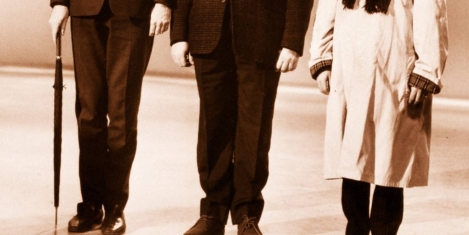To provide the best experiences, we use technologies like cookies to store and/or access device information. Consenting to these technologies will allow us to process data such as browsing behaviour or unique IDs on this site. Not consenting or withdrawing consent, may adversely affect certain features and functions.
The technical storage or access is strictly necessary for the legitimate purpose of enabling the use of a specific service explicitly requested by the subscriber or user, or for the sole purpose of carrying out the transmission of a communication over an electronic communications network.
The technical storage or access is necessary for the legitimate purpose of storing preferences that are not requested by the subscriber or user.
The technical storage or access that is used exclusively for statistical purposes.
The technical storage or access that is used exclusively for anonymous statistical purposes. Without a subpoena, voluntary compliance on the part of your Internet Service Provider, or additional records from a third party, information stored or retrieved for this purpose alone cannot usually be used to identify you.
The technical storage or access is required to create user profiles to send advertising, or to track the user on a website or across several websites for similar marketing purposes.
 The cost of poor company culture is a staggering £20.2 billion per year, according to research from HR software provider Breathe. The report ‘The Culture Economy 2021’, claims that almost a third (27 percent) of SME employees quit their job due to poor workplace culture, an increase of 6 percent from last year (21 percent). (more…)
The cost of poor company culture is a staggering £20.2 billion per year, according to research from HR software provider Breathe. The report ‘The Culture Economy 2021’, claims that almost a third (27 percent) of SME employees quit their job due to poor workplace culture, an increase of 6 percent from last year (21 percent). (more…)






 One of the most significant consequences of the 2008 economic crash was a remarkable shift
One of the most significant consequences of the 2008 economic crash was a remarkable shift 
 A new study on recruitment and workforce trends has crowned London as the world’s most desirable city to work in, with the UK capital holding onto the top spot, despite uncertainty around Brexit and the ongoing Covid-19 pandemic.
A new study on recruitment and workforce trends has crowned London as the world’s most desirable city to work in, with the UK capital holding onto the top spot, despite uncertainty around Brexit and the ongoing Covid-19 pandemic. 
 Progress for women in work could be back at 2017 levels by the end of this year as a result of the COVID-19 pandemic, according to analysis conducted for
Progress for women in work could be back at 2017 levels by the end of this year as a result of the COVID-19 pandemic, according to analysis conducted for 
 UK employers claimed £24 billion of free labour last year because of workers doing unpaid overtime, according to new analysis published by the
UK employers claimed £24 billion of free labour last year because of workers doing unpaid overtime, according to new analysis published by the 
 UK employers are reporting their strongest employment intentions in a year, the latest
UK employers are reporting their strongest employment intentions in a year, the latest 
 Almost two million workers were unemployed or fully furloughed in January – and had been for at least six months – highlighting the scale of lasting damage to the UK’s labour force that will need to be addressed in the Budget, according to major new research published today by the Resolution Foundation.
Almost two million workers were unemployed or fully furloughed in January – and had been for at least six months – highlighting the scale of lasting damage to the UK’s labour force that will need to be addressed in the Budget, according to major new research published today by the Resolution Foundation. 


 With six weeks still to go until the Chancellor’s Budget, the CIPD is urging the Government to act early to extend the furlough scheme to protect jobs, support incomes and enhance skills development. Its calls are outlined in a report called
With six weeks still to go until the Chancellor’s Budget, the CIPD is urging the Government to act early to extend the furlough scheme to protect jobs, support incomes and enhance skills development. Its calls are outlined in a report called 
 Employers are failing to identify and tackle potential age bias in their recruitment process, with most employers interviewed not seeing it as a ‘problem’ in their organisation, according to a new report by the
Employers are failing to identify and tackle potential age bias in their recruitment process, with most employers interviewed not seeing it as a ‘problem’ in their organisation, according to a new report by the 









February 26, 2021
The link between wellbeing and green design is driving material innovation
by Craig Stuart • Comment, Environment, Wellbeing, Workplace design